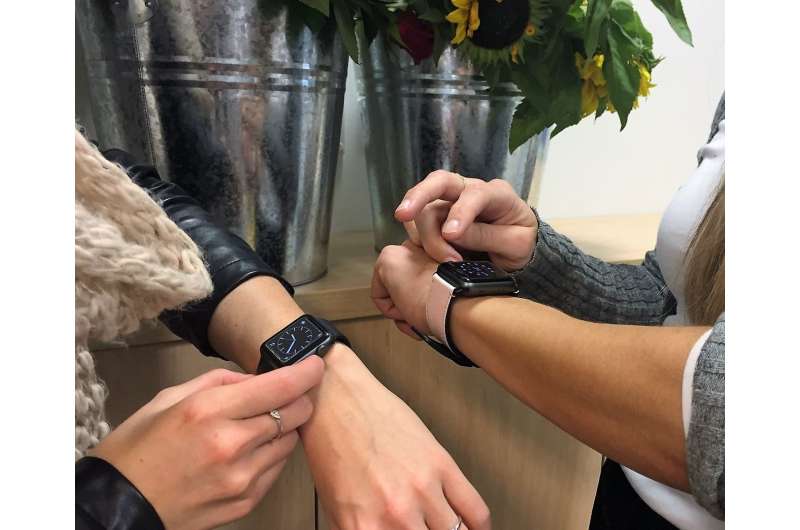Credit: Flinders University
Increasingly popular smart watches can be used to help clinicians identify early warning signs of mental health disorders and monitor the success of treatment.
Used by millions of people every day, new research by Flinders University has found wearable technology and smart phone apps could be an effective tool in improving the treatment of mental health disorders – by increasing the chances of early detection.
Typically used to track physical activity or simply as a fashion statement, smart watches have the potential to provide real time updates which could identify worsening mental health.
The study, led by Flinders Associate Professor of Personal Informatics Niranjan Bidargaddi and researcher Dr. Alissa Knight, aims to revolutionise the way clinicians approach treating mental illness.
"This study proves there is scope to incorporate wearable technology and smart phone apps into mental healthcare, providing an opportunity for early intervention by clinicians at little to no cost," Dr. Knight says.
"Watches and tracking apps are unique in that they can provide data on a person's daily routine.
"This study tested whether smart technology can also provide updates about someone's mental health, while also allowing users to track their own wellbeing if they choose to do so."
Researchers found disruptions in routine physical activity over an extended period of time might be a reliable indicator of changes in a person's mental condition.
With large numbers of mental health sufferers reluctant to seek out treatment, early diagnosis can be difficult, but digital wearables are proving they could be used as an effective screening method.
Credit: AI-generated image (disclaimer)
"Traditionally it has been difficult to get an update on someone's mental health in between clinical sessions, but our study found people are generally happy to share their personal data when its tracked by wearable technology like a Fitbit for instance," Dr. Knight says.
The study followed the activity of 43 young adults who had previously reported suffering moderate symptoms. They were monitored over eight months using smart watches and phone apps to determine if their mental condition correlated with changes in physical activity.
Dr. Knight says the results present an exciting opportunity to improve screening techniques.
"Instead of mental health screening, digital tracking of physical activity would allow the opportunity to gather data which could show how someone's mental health is evolving before and after intervention.
"When sufferers feel there is a stigma attached to their mental health treatment, especially with employers, a program like this could be an option. In fact, some workplace programs are positioning themselves in this space."
She says while the study proves wearable technology could be used to monitor changes in mental health, the next step is further research into which kind of devices and apps would be most effective.
"These devices could be used as a resource to empower patients' self management of their mental health, and improve clinical treatment," says Associate Professor Bidargaddi, who adds that more research is required to determine a standard tracking system for symptoms.
"Improved location data would allow us to understand how often sufferers leave their house in a certain number of days or whether they are spending more time at the gym," he says.
This research paper, titled "Commonly available activity tracker apps and wearables as a mental health outcome indicator: A prospective observational cohort study among young adults with psychological distress," by Niranjan Bidargaddi and Alissa Knight, has been published in the Journal of Affective Disorders, Volume 236, Pages 31-36.
More information: Alissa Knight et al. Commonly available activity tracker apps and wearables as a mental health outcome indicator: A prospective observational cohort study among young adults with psychological distress, Journal of Affective Disorders (2018). DOI: 10.1016/j.jad.2018.04.099
Journal information: Journal of Affective Disorders
Provided by Flinders University























